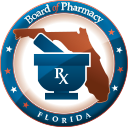HB 389 - Practice of Pharmacy
Effective Date: July 1, 2020
HB 389 (Full Text)
Summary:
The bill authorizes a pharmacist to enter into a collaborative pharmacy practice agreement (CPPA) with a physician to manage chronic health conditions if the pharmacist meets certain qualifications. A CPPA must meet certain terms and specify the health conditions, treatments, and tests governed by the CPPA. The bill prohibits a collaborating pharmacist from initiating or prescribing a controlled substance or modifying or discontinuing any medication that is prescribed by a health care practitioner who does not have a CPPA with the pharmacist.
The bill authorizes a pharmacist, who meets certain qualifications, to test or screen for and treat minor, nonchronic health conditions within the framework of a written protocol with a supervising physician. The conditions are limited to influenza, streptococcus, lice, skin conditions, and minor, uncomplicated infections. The protocol must specify the patients that may be seen, instructions for obtaining a patient’s medical history, instructions for treatment, and a process and schedule for the pharmacist to provide patient information to the supervising physician and the supervising physician to review the pharmacist’s actions under the protocol.
The bill requires the Board of Pharmacy to adopt, by rule, a formulary of medicinal drugs that an authorized pharmacist may prescribe to treat minor, non-chronic health conditions. A pharmacist may not prescribe any controlled substance; however, the Board-developed formulary may include any non-controlled substance, including those that typically need a prescription to dispense, such as antibiotics, and over-the-counter medications. The bill authorizes a pharmacist to use certain laboratory or clinical tests, as well as any established screening procedures for which no test is available.
A pharmacy in which a pharmacist provides services for minor, non-chronic health conditions must prominently display a sign advising a patient receiving such services to seek follow-up care from a physician. The Board of Pharmacy must adopt guidelines for advising a patient to seek follow-up care from a physician.
HB 559 - Institutional Formularies Established by Nursing Home Facilities
Effective Date: July 1, 2020
HB 559 (Full Text)
Summary:
The bill authorizes a nursing home to establish an institutional formulary by which a pharmacist may use therapeutic substitution, without obtaining a new prescription, to replace a resident’s prescribed drug with a chemically different drug listed in the formulary that is expected to have the same clinical effect.
The bill requires a nursing home to obtain a prescriber’s authorization to use an institutional formulary for each of the prescriber’s patients in the nursing home and allows a prescriber to opt out of the institutional formulary for a specific drug or a class of drugs. The nursing home must notify the prescriber prior to each therapeutic substitution and document the resident’s medical record when a substitution occurs. The bill requires a nursing home to obtain informed consent from a resident or a resident’s representative to use the institutional formulary for the resident.
The bill prohibits a nursing home from taking adverse action against a prescriber or resident who refuses to use the institutional formulary.
HB 599 - Consultant Pharmacists
Effective Date: July 1, 2020
HB 599 (Full Text)
Summary:
The bill revises requirements and responsibilities of a consultant pharmacist by authorizing a consultant pharmacist to enter into a written collaborative practice agreement to provide medication management services with a health care facility medical director or Florida-licensed allopathic physician, osteopathic physician, podiatric physician, or dentist to:
- Order and evaluate laboratory and clinical testing;
- Conduct patient assessments;
- Administer medications; and
- Modify or discontinue medicinal drugs pursuant to a patient-specific order or treatment protocol.
A consultant pharmacist may only provide services to the patients of the health care practitioner with whom the consultant pharmacist has a written collaborative practice agreement. The bill requires both the consultant pharmacist and health care practitioner to maintain a copy of the collaborative agreement and make it available upon request or during an inspection. The bill also requires the consultant pharmacist to maintain all drug, patient care, and quality assurance records.
The bill authorizes a consultant pharmacist to provide services to patients in an ambulatory surgical center, hospital, alcohol or chemical dependency treatment center, inpatient hospice, or ambulatory care center, in addition to those authorized in current law (nursing home and home health agency patients). The bill clarifies that a consultant pharmacist is not authorized to diagnose any disease or condition, and authorizes the Board of Pharmacy to establish additional education requirements for licensure as a consultant pharmacist.
The bill also authorizes a pharmacist to make recommendations regarding the patient’s health care status with the patient’s prescribing health care practitioner or others specifically authorized by the patient.
HB 59: Automated Pharmacy Systems
Effective Date: July 1, 2020
http://www.flsenate.gov/Session/Bill/2020/59/BillText/er/PDF
The bill expands current law to authorize a community pharmacy to provide outpatient dispensing through the use of an automated pharmacy system. The bill establishes criteria for such systems and a community pharmacy’s responsibilities when employing such a system.
HB 115: Keep Our Graduates Working Act
Effective Date: July 1, 2020
http://www.flsenate.gov/Session/Bill/2020/115/BillText/er/PDF
The bill prohibits the Department of Health (DOH) from denying the issuance of, refusing to renew, suspending, or revoking a professional license based solely on the licensee being delinquent on a payment of or defaulting on his or her student loans. The bill removes the specific provision allowing DOH to discipline a health care practitioner for failing to repay a student loan and the associated mandatory discipline. The bill repeals the requirement that DOH must issue an emergency order suspending a health care practitioner’s license for a student loan default, absent timely proof of a new repayment plan. Additionally, the bill repeals the requirement that DOH must obtain a monthly list from the United States Health and Human Services (USHHS) of the health care practitioners who have defaulted on their student loans.
HB 713: Department of Health
Effective Date: July 1, 2020
http://www.flsenate.gov/Session/Bill/2020/713/BillText/er/PDF
The bill amends numerous practice acts to streamline regulation and increase efficiency. The bill makes numerous updates and changes to programs and health care professions regulated under the boards and Department of Health (DOH):
- Requires an applicant for a health care professional license to provide his or her date of birth on the application
- Repeals a health care practitioner’s failure to repay student loans as grounds for discipline by the DOH





